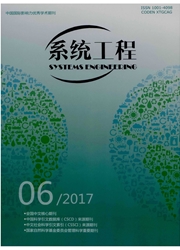

 中文摘要:
中文摘要:
频繁爆发的金融危机表明,当前的金融稳定制度不能有效约束金融机构冒险获利的冲动,甚至可能激励微观机构选择短期行为,引发道德风险。本文根据风险-收益对称原理,建立微观审慎监管-宏观审慎监管-金融机构三部门模型,剖析金融衍生过程与风险积累机理,探索一种风险防范机制——结合项目风险水平从决策者当期薪酬中计提风险准备金,以约束金融机构管理者任职期内的短期冒险行为,防范未来金融风险。建立有效的风险准备机制的条件是,通过微观审慎监管督促金融机构准确披露风险信息,提交风险准备资金;通过宏观审慎监管实时监测金融体系风险状况,准确预测风险发展态势,并有效管理风险准备资金。在风险准备金机制下,即使部分金融机构发生偿付风险,政策当局也可根据其对金融体系当前及未来稳定运行的影响,结合风险准备规模、存款保险及最后贷款人救助等采取应对措施。
 英文摘要:
英文摘要:
Frequent outbreaks of financial crisis have shown that the present financial stability system cannot constrict the risk adventurers of financial institutes, even spur their short term behaviors, which induce moral hazard. According to the risk matching income principle, this paper constructs a three-department model, including the micro-financial regulatory institute, the macro-financial regulatory institute and financial organizations. Through analyzing the mechanism of risk origins and spreading, this paper concludes that the effective way to control risks is to set up risk reserves from executives' salaries according to the estimated risk of projects. The pre-conditions to implement this approach are, first, accurate information disclosure and adequate risk reserves supervised by the micro-financial regulation institute; second, accurate forecasts of risk dynamics and effective management of risk reserves through monitoring the systematic financial risks by the macro-financial regulation institute. Under this risk reserve system, even some financial institutes do have liquidity crisis, the regulation authority can have some appropriate methods according to its effects on financial stability, the scale of risk reserve, saving insurance and help from lender of last-resort.
 同期刊论文项目
同期刊论文项目
 同项目期刊论文
同项目期刊论文
 期刊信息
期刊信息
